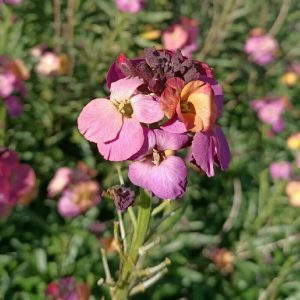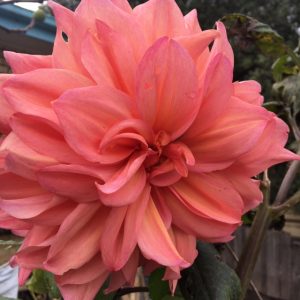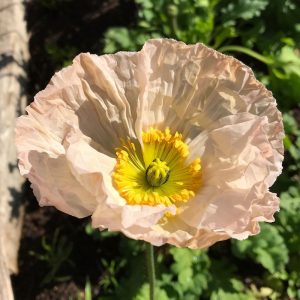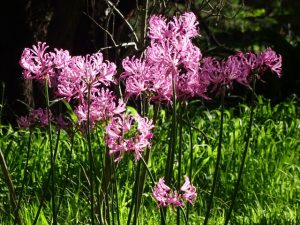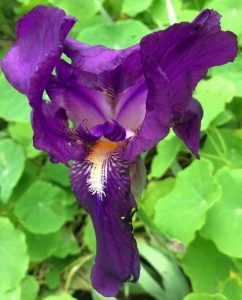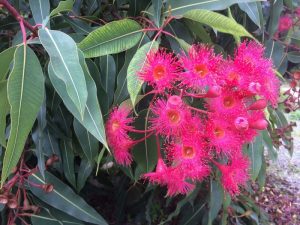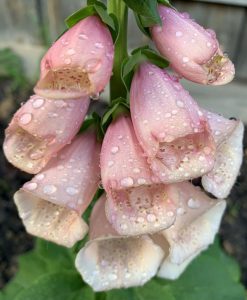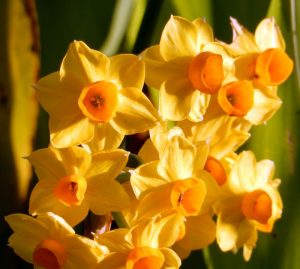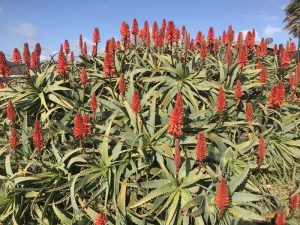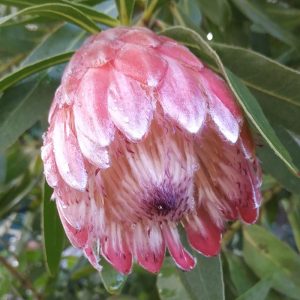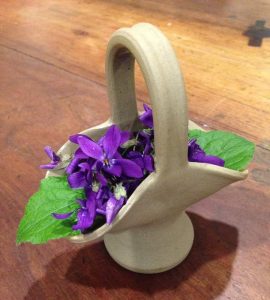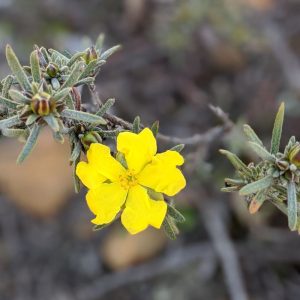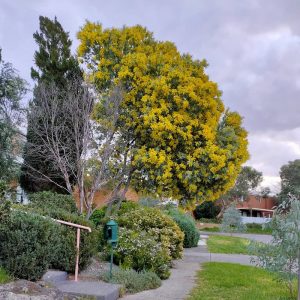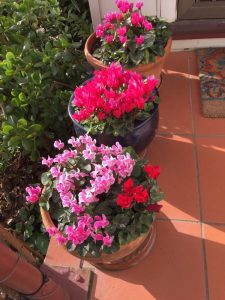Thanks to all the people who have contributed to this week’s newsletter: Aziza de Fazio, Beata Clark, Bronwen Whyatt, Cathy Romeo, Choon Yin Yeok, Chris Kent, Dione Fisher, Doris Glier, Fay Loveland, Fiona Finch, Georgina Aquilina, Karin Motyer, Melissa Tripodi, Natalie Nigol, Pam Jenkins, Rita Varrasso, Shiva Vasi, Soo Mei Leong, Vanessa Reynolds, Velyne Moretti, Virginia Solomon, Yvonne Ashby and Zofia Di Stefano.
Note that most of this newsletter was written before the recent announcement of the re-introduction of Stage 3 restrictions.
Farmers’ market news
Regional Farmers’ Market have just announced that they will be reducing their number of farmers’ markets from 15 to 8. As a result, all three of their farmers’ markets in North East Melbourne (Bundoora Park, Croydon and Heathmont) have ceased to operate. Read their Facebook post on the subject.
Local food producer news – Microtown
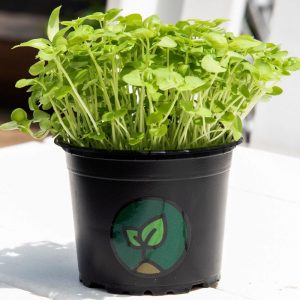 Microtown, who are an Eltham-based grower of microgreen herbs and vegetables, have become a stallholder at Eltham Farmers’ Market. They are scheduled to attend on the 2nd and 4th Sundays of each month so they should be at the market this upcoming Sunday (12th July). Welcome Cate and Graeme!
Microtown, who are an Eltham-based grower of microgreen herbs and vegetables, have become a stallholder at Eltham Farmers’ Market. They are scheduled to attend on the 2nd and 4th Sundays of each month so they should be at the market this upcoming Sunday (12th July). Welcome Cate and Graeme!
What farmers’ markets will be happening this weekend?
On Saturday: Coburg and Collingwood Children’s Farm (re-located to Alphington).
On Sunday: Alphington, Eltham and Whitehorse.
Food swap news
Because of the re-introduced Stage 3 restrictions in the neighbouring suburbs, the Pascoe Vale Food Swap didn’t actually happen last weekend.
Pam talks about yacon
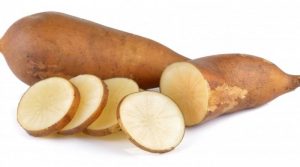 Pam Jenkins, from Diamond Creek, has produced a short video on her experience growing and harvesting yacon. She has also written some words to accompany the video.
Pam Jenkins, from Diamond Creek, has produced a short video on her experience growing and harvesting yacon. She has also written some words to accompany the video.
As Pam says, yacons form two sorts of roots:
- Small, reddish coloured rhizomes close to the base of the plant which are used to propagate the next season’s crop.
- Bigger, brown tubers that are the plant’s storage roots which are harvested for eating.
Last spring, Pam kindly gave me a couple of yacon rhizomes which I grew and have recently harvested. They are really worth growing: the tubers (surprisingly) have both a taste and a texture a bit like an apple, you get lots of tubers from a single plant, and the plants seem to thrive with little care. I mostly eat them raw in salads or in stir fries. The only downside is that they do require a bit of space (at least 0.5 metres in each direction and 2 metres in height).
Finally, Pam says that she kept some yacon tubers in the crisper for a few days and that they really sweetened up beautifully and were much nicer to eat than the ones straight out of the ground.
Watch Pam’s video and read her words.
Fighting hunger in Diamond Valley
Diamond Valley Community Support (DVCS), who are based in Greensborough, is organising a Fighting Hunger in Diamond Valley Week from 3rd August to 10th August. DVCS is an emergency relief organisation that has supported the Diamond Valley region since 1972 and they are looking for food donations to help feed local community members in need.
You can get involved by either hosting a small food drive (dry goods only: cereal, pasta, sauces, cans, instant meals, etc) or by making a donation. Contact them by phone (9435 8282) or email (volunteers@dvsupport.org.au) to discuss further.
A new gardening program for older residents in Darebin
Delivered in accordance with social distancing measures, the ‘Buds’ program aims to support older residents to maintain an active involvement in gardening by buddying up with a young helper from the local community. There is a small cost ($10 per month) but it is heavily subsidised and entitles you to three hours of support per month. Read more.
Yes, you did know!
Two weeks ago, Darryl Wilson asked if anyone know of any courses in medicinal plants so that he could potentially help his paraplegic brother-in-law. We have now had two replies.
Melissa Tripodi has written in to say that she is studying naturopathy and that she has plenty of resources on medicinal herbs to share with Darryl. She also says that The Shift Network has some courses on aspects of mind body medicine.
Pam Jenkins has now written in to point out that the Department of Nutrition, Dietetics and Food at Monash University runs a free, three week online course entitled Food as Medicine.
Thanks Melissa and Pam!
Do you know?
Beata Clark asks: “I’m looking for advice about sustainable potting mix, particularly the mineral content. I’d like to make my own and I produce a lot of compost but need something to improve drainage. I don’t feel good about using river sand. The British use a lot of grit, which is a quarried product. Is there anything I can use that is more eco-friendly?” Email me with your answer.
Georgina Aquilina asks: has anyone got any tips for keeping possums away from veggie boxes? Email me with your answer.
Georgina Aquilina also asks: has anyone got any tips on starting an indoor aquaponics system? Email me with your answer.
More on some of last week’s discussion items
Dealing with oxalis
Virginia Solomon has written in to say that, whilst Oxalis corniculata, or common wood sorrel, is a common weed in Melbourne, the species that is currently giving everyone grief right now is Oxalis pes-caprae. But, as Virginia says, it is dormant for most of the year and she thinks that we over-stress about it.
Chris Kent has also written in to say that, whilst Oxalis corniculata is certainly a weed, it is more easily controlled than the far more prevalent Oxalis pes-caprae. Indigenous to South Africa, O. pes-caprae is an invasive species and noxious weed in many parts of the world. It has a reputation for being very difficult to eliminate due to propagation through its underground bulbs. By contrast, O. corniculata spreads on the surface with a creeping stem which readily roots at the nodes and it is easily removed.
Incidentally, Oxalis pes-caprae is a good example of how Latin names are so much more precise than English ones: Wikipedia give the following alternative English names for Oxalis pes-caprae – Bermuda buttercup, African wood-sorrel, Bermuda sorrel, buttercup oxalis, Cape sorrel, English weed, goat's foot, sourgrass, soursob and soursop. So, Virginia's soursop and Chris’s English weed is my goat's foot!
Seed germination
Fay Loveland has written in to point out that the seeds of some vegetables remain viable for much longer than others. This article on The Seed Collection website provides some lists and also discusses how to store seeds. The Seed Collection are a Melbourne-based company who sell seeds online that are “heirloom, open pollinated, non-hybrid and non-GMO seeds with no chemical treatments“.
My take on the length of viability of seeds of different vegetables is provided in the right hand column of our veggie planting guide.
Angelo’s new articles
Newsletter reader Angelo Eliades has written an article about how to change soil pH. It follows on from his previous article about understanding soil pH and how it affects plant nutrient availability.
He has also written an article about white or tan spots on brassica leaves
Read more of Angelo’s food-related articles.
Maria’s recent food growing videos
Newsletter reader Maria Ciavarella has published a series of food growing videos over the last month:
- Making jam from frozen berries.
- Making compost fast.
- Growing awesome asparagus.
- Winter fruit tree pruning.
- Propagating tomatoes from seed.
- Making easy zucchini pickles.
Guy’s fruit growing tip – how to prune raspberries and blackberries
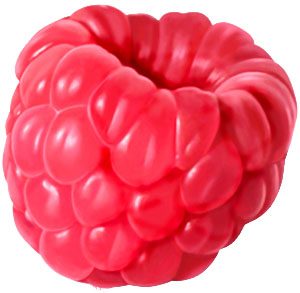 I have given this tip before but it is worth repeating. If you haven’t yet pruned your raspberries (or blackberries or raspberry/blackberry crosses), now is the time to do so.
I have given this tip before but it is worth repeating. If you haven’t yet pruned your raspberries (or blackberries or raspberry/blackberry crosses), now is the time to do so.
There are two types of raspberry:
- ‘Summer bearing’, which fruit once a year, on 2nd year canes in summer.
- ‘Everbearing’ (aka ‘Autumn bearing’), which fruit twice a year, on 2nd year canes in summer, and on 1st year canes in autumn.
The two types should be pruned differently. If you haven’t yet worked out which type you have, prune them as though they are ‘summer bearers’. Also, prune both blackberries and blackberry/raspberry crosses (loganberries, marionberries, silvanberries, tayberries, etc) in the same way as ‘summer bearers’.
For the ‘summer bearers’: cut all the canes that have fruited down to the ground (because they won’t fruit again). If you don’t know which canes have fruited, they are the longer and thicker ones, and they often have multiple lateral branches. Thin the others to 5-7 per plant, shorten them as desired, and tie the ends to your trellis.
For the ‘everbearers’: you can prune them like the ‘summer bearers’, in which case you will get two crops (in summer and autumn), neither of which will be prolific. Alternatively, you can sacrifice next summer’s crop for a better autumn crop by simply cutting all the canes down to the ground. Clearly, the second approach would not be good if your raspberries are, in fact, ‘summer bearers’ as it will result in no fruit next year! But it is (arguably) the best approach if you want raspberries in the autumn, and it is also the quickest.
I rather like the Wikihow raspberry pruning page.
Read more of Guy’s food-growing tips.
Meg’s social isolation week
Thank you from Gippsland Seed Drive
It’s nice to know that we are connected. Gippsland Complete Heath is helping to keep school gardens in fire-affected areas running during lockdown and say thanks to all those who have supported their Gippsland Seed Drive in the past few weeks: “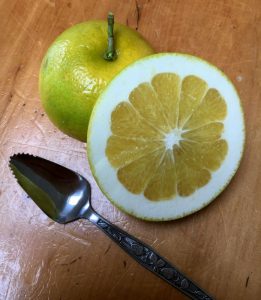 Now that the schools are back open, we’ve hit the ground running, desperate now to get some seeds planted for spring/summer. So any donations would be gratefully received. We can send through some pictures when they all come to life.”
Now that the schools are back open, we’ve hit the ground running, desperate now to get some seeds planted for spring/summer. So any donations would be gratefully received. We can send through some pictures when they all come to life.”
Any spare seeds would be well received. Send to Gippsland Lakes Complete Health, PO Box 429 Lakes Entrance, VIC 3909.
My week
When there is disquiet, there is always the garden (and cooking!). All citrus are producing well, especially the lemons, limes and grapefruit. My children have been picking the grapefruit straight from the tree (even a little green) to eat. This week my aunt sent me some 1970’s era ‘grapefruit spoons’. They are a slightly longer teaspoon with a serrated tip that is designed to help cut out the grapefruit as you go (see photo). I had not seen these before and my children thought that they were great.
Orange custard tart
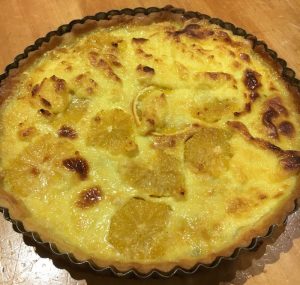 Here is my aunt’s citrus variation on my rhubarb tart. It has a soft orange custard filling which is wonderful.
Here is my aunt’s citrus variation on my rhubarb tart. It has a soft orange custard filling which is wonderful.
Pastry
1 quantity of store bought sweet shortcrust pastry or make your own.
If making your own:
500g plain flour
250g butter at room temperature
5ml vanilla
100g caster sugar
50mls water
Combine all the ingredients in a food processor until it comes together and rest in the fridge before using.
Filling (enough for a 20cm tart tin)
½ vanilla pod (or 1 teaspoon vanilla paste)
150ml milk
150ml cream
3 large egg yolks
60g caster sugar
1 teaspoon plain flour
1 orange
50g sugar
Mix the milk, cream and vanilla in small saucepan and warm over a low heat (do not bring to boil). Remove from heat and allow to sit for 10-15 minutes.
If using a vanilla pod, remove and scrape out the seeds into the milk mixture.
Add the finely grated rind of the orange (but save the orange). Add the egg yolks, sugar and flour and whisk together.
Roll out the pastry to cover your tin, prick the pastry with a fork and blind bake in 200degC oven.
Cool.
Add the filling. Slice the reserved whole orange into rounds and place on top. Bake 25-30mins at 180degC.
Read more of Meg’s recipes on our website.
Reader photos
Last week’s theme – winter flowers
16 people submitted photos. Thanks, everyone. If it had been a competition, I think Choon Yin Yeok’s photo of an Iceland poppy might have been the winner, with Rita Varrasso’s aloe vera the runner up.
Here is what Soo Mei Leong said about her protea photo: “When days are shorter and colder, proteas bring colour and cheer as well as attracting birds to the garden. In the local tradition of South Africa, where they originate, they symbolise change and hope. There are only few countries in the world with the appropriate climate that can grow them, with Australia being one – we are indeed the lucky country! Expensive at times, they are long-lasting cut flowers that can be dried too – a truly worthy shrub to grow being hardy and fuss-free.”
And here is what Vanessa Reynolds said about her vase of violets: “” Violets are a favourite winter flower. Violets in a vase always bring me special memories of my mum, who died 4 years ago when violets were blooming too. She brought the little vase with her from the UK when we all migrated on the £10 Ten Pound Poms scheme. We were allowed to bring just one tea chest of belongings per person, around 1 cubic yard, and mum made space for a few special small treasures. We had no furniture, but I knew how much mum loved that vase. Especially with violets in it.”
This week’s theme – garden art
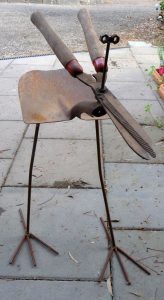 This week’s photo theme will be ‘garden art’. Send me your interesting photos, together with a title and (if you want) a story, and I will publish them next week.
This week’s photo theme will be ‘garden art’. Send me your interesting photos, together with a title and (if you want) a story, and I will publish them next week.
To get you started, here is a photo of a bird sculpture from my garden made from a spade, shears and other recycled iron.
Which link was clicked most times in the last newsletter?
Joke of the week
What do the Australian Cricket Team and pancakes have in common? They both need a good batter!.
Upcoming online events
If you know of any events other than those listed below, email me.
Newly announced events
Soil health with Kat Lavers: Monday, 20th July, 6.30-9pm; free; organised by Whitehorse Council. Read more and book on EventBrite.
Previously announced events
Understanding and improving your soil: Saturday, 11th July, 10.30-11.30am; $20; organised by BAAG. Read more and book on WeTeachMe.
Fire and fungi: Thursday, 16th July, 6.30-7.30pm; $25 (recommended donation); organised by MYCOmmunity. Read more and book on their website.
Backyard beekeeping basics: Tuesday, 28th July, 7-9pm; $50; organised by CERES. Read more and book on Humantix.
Open Table offer their weekly no waste cook club workshops free and online on Saturdays. As well as cooking (which is actually optional), you will learn about food waste and composting. Register on EventBrite.
Whitehorse Council are publishing on their Youtube channel a video each Monday at 9am on various aspects of sustainability.
Newsletter reader Chloe Thomson is doing free, weekly podcasts on gardening for Bunnings.
Pip Magazine (some of whose journalists live in North East Melbourne) are producing a series of videos entitled simple skills for self sufficiency.
Good Life Permaculture are producing a series of videos entitled crisis gardening.
All The Dirt is a weekly podcast about gardening.

